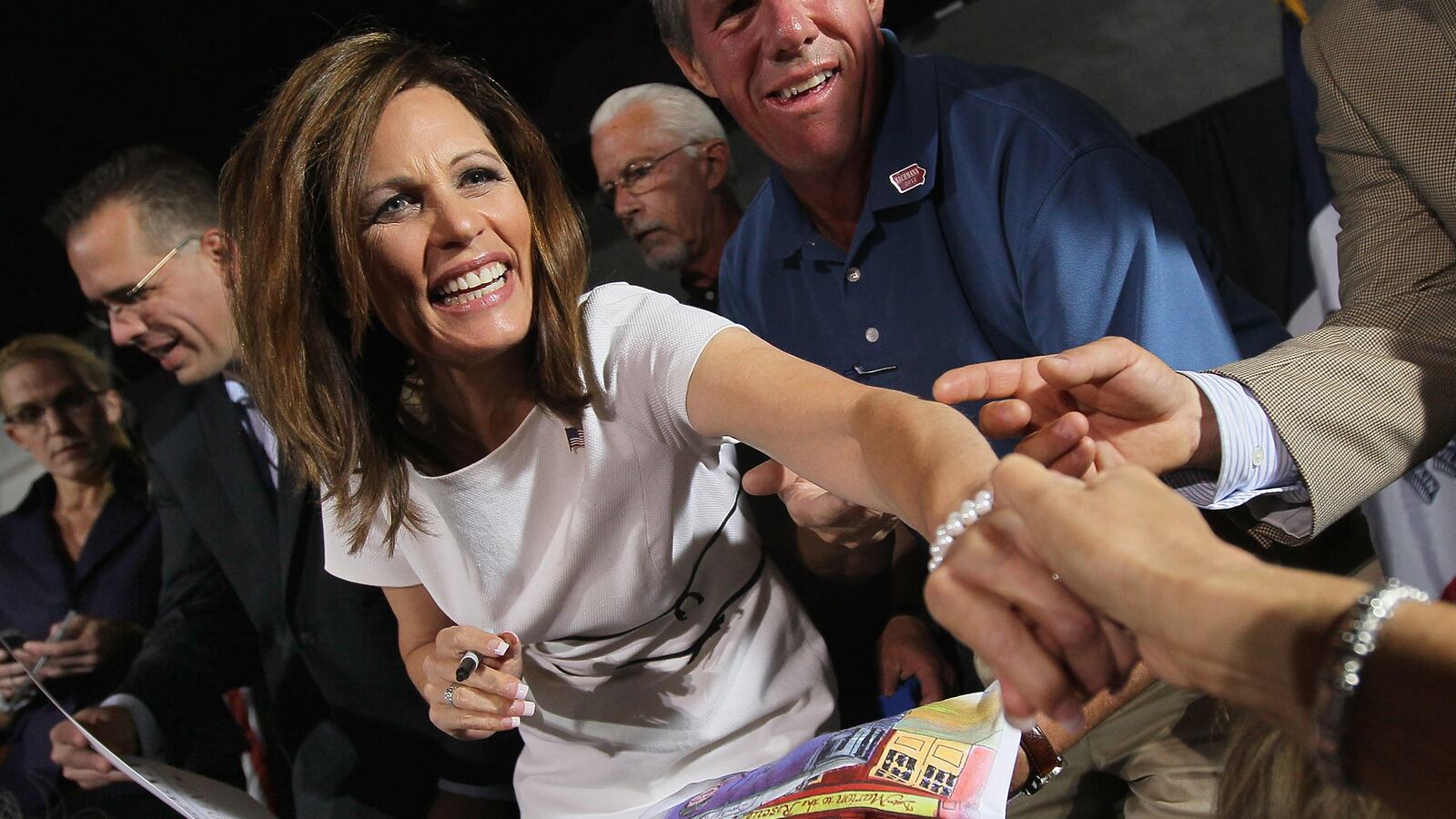Two weeks after Mitt Romney conceded defeat, the Republican civil war around the 2016 nomination process has started. There are no candidates declared, and no one has set a date for a single primary election. But a three-way contest is already shaping up among establishment Republicans, social conservatives, and Ron Paul supporters to determine who takes control of the party.

Iowa Gov. Terry Branstad, an establishment figure now on his fifth term in the Iowa statehouse, fired the first shot, in an interview with The Wall Street Journal, he announced his desire to end the Ames Straw Poll, the quadrennial fundraiser where those who buy (or are bought) a $30 ticket get to vote in a beauty contest that serves to winnow out some Republican candidates before the caucuses. “I think the straw poll has outlived its usefulness,” Branstad said. “It has been a great fundraiser for the party, but I think its days are over.” As Branstad noted, the 2011 Straw Poll was won by Michele Bachmann, whose candidacy then imploded—and she eventually finished last in the Iowa caucuses. This isn’t, however, a decision Branstad can make.
Instead, it’s the decision of the chair of the Republican Party of Iowa, A.J. Spiker, the former state vice chair of Ron Paul’s campaign, and, to put it mildly, he disagrees. Spiker sees the moves against the straw poll as part of “a continued effort to make sure that the political industry selects candidates rather than the grassroots.” Spiker maintains the straw poll “is probably the best opportunity … to plant some grassroots and put in place a infrastructure for the Iowa Caucus” and believes the push to end it are parallel to the controversial efforts in Tampa by the Romney campaign for “more consolidation of power” among party elites.
Steve Deace, prominent Iowa social conservative activist and talk radio host, who was outraged that the governor would try to end the state party’s biggest fundraiser, echoed Spiker’s sentiment in even more vehement tones. “The only people who hate conservatives more than Democrats are people like Terry Branstad,” Deace said. He went on to scathingly describe the Republican governor’s political influence in the state saying, “I’d almost rather have Barack Obama’s endorsement in 2016 than Terry Branstad’s; it tells all the Ron Paul and social conservatives who not to vote for.”
In Deace’s eyes, Branstad’s statement is “a preemptive strike aimed at conservatives” to keep establishment control of the Republican Party, and specifically aimed at “trying to stop Rand Paul.”
Unsurprisingly, establishment Republicans disagree.
Doug Gross, Branstad’s former chief of staff and the 2002 Republican gubernatorial nominee in Iowa, sees the call for ending the straw poll as simply “a statement of the obvious; over the last couple of cycles, more and more of the candidates have been skipping without adverse impact.” He noted that neither John McCain in 2007 nor Mitt Romney in 2012 participated in the straw poll; both went on to win the Republican nomination. Gross warned that for Iowa to stay relevant, it has to ensure that “our winnowing process doesn’t get hijacked by extremists, and diminishes our chances” of winning a general election. Indeed, Gross warns that the straw poll may even prevented Romney from winning this year.
Although Romney didn’t participate in the 2011 Iowa poll, he won the 2007 contest and Gross, who was Romney’s state campaign chair that year, blames his effort there in part for his 2012 loss. “It diminished his nationwide candidacy” said Gross. “[Romney] took positions on immigration that were quite far to the right and if he hadn’t taken those positions, he would have a better chance of winning swing states like Nevada, Colorado, and Florida” this year.
Regardless of the electoral influence it has or doesn’t have, the straw poll is still a major fundraiser for the state party, though that’s not the real concern. As former state party chair Mike Mahaffey notes, there are alternative ways to raise money. Mahaffey, who agrees with Branstad that “the straw poll has outlived its usefulness,” pointed out that “Democrats haven’t had [a straw poll] and they seem to do pretty well from a financial and political standpoint, and I think there are other ways that the party can raise some money.”
In the end, this is a debate about determining who wins Iowa in 2016.
The electorate in the 2016 caucuses almost certainly will be more conservative than it was in 2012, simply because many moderates and centrists will have the option of participating in Democratic caucuses. The question is whether a straw poll, which rewards social conservatives and those with strong organizations, like Paul, will be used to winnow the field beforehand. Although the straw poll has dealt death blows to conservative candidates in the past, as with Sam Brownback in 2008, more often it ends the campaigns of establishment Republicans. In the past three election cycles, politicians believed to have been formidable contenders, such as Tim Pawlenty, Tommy Thompson, and Elizabeth Dole, have seen their campaigns prematurely ended by the poll.
This debate is not procedural, and it’s not really about Michele Bachmann’s win in 2008. Instead, it’s about determining what options Iowa caucusgoers have, and what nominee the party produces. Holding the straw poll favors a candidate like Rand Paul, who appeals to many of his father’s supporters as well as some social conservatives. Not holding the poll makes it easier for establishment candidates like Chris Christie or Jeb Bush in the Republican primary. The fight over the straw poll is simply the first battle in the war over who becomes the Republican nominee in 2016—and which faction takes control of the Grand Old Party.






